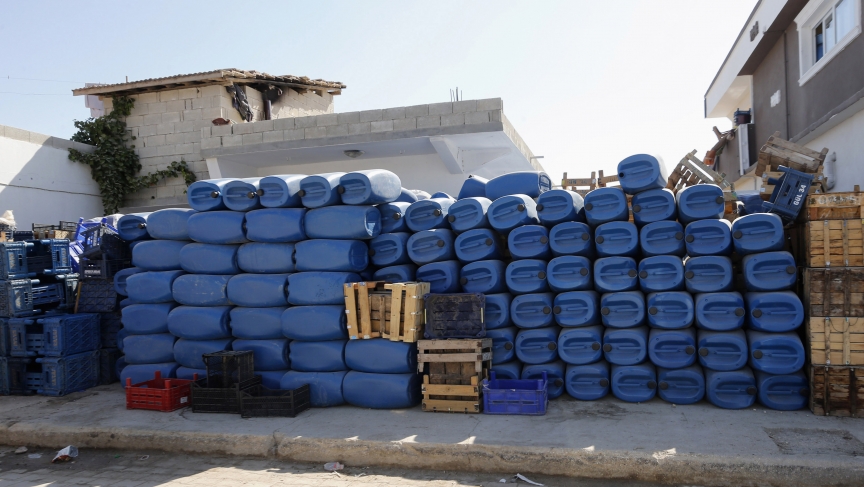Plumes of black smoke billow on the horizon of this border town in northeast Syria, a thumb-shaped corner of the country that pokes into neighboring Turkey and Iraq.
The smoke isn’t from war, but it rises from the deadly fight over resources between Islamic State and Kurdish fighters. Men, women and children operate thousands of primitive metal kilns to refine crude oil distributed by the warring sides to buy loyalty. Residents sell the fuel they make to black-market traders.
 |
| A man from the Syrian village of Ali Agha near the border with Iraq digs a hole for a new kiln to refine crude oil. Sam Dagher/WSJ |
With oil now the only stable income in these impoverished rural communities, each side offers a choice: Fight us and die. Or, join us and earn a living.
The U.S. seeks to expand its support of Kurdish forces fighting Islamic State for control of the towns and villages bound by the Tigris and Euphrates rivers. The Wall Street Journal found the conflict as murky as the sludge that spills from the makeshift kilns onto land grazed and farmed since Biblical times.
As one 27-year-old tribesman said, local Arabs are eager for oil income but most hate the Kurds as much as they fear Islamist militants.
 |
| Plumes of smoke billow over northeast Syria, where largely impoverished Arab families operate thousands of primitive metal kilns to refine crude oil. Sam Dagher/WSJ |
Islamic State controls most of the southern section of Syria’s Hasakah province and nearly all of the adjacent Deir Ezzour province, both rich in oil and gas, as well as most of nearby Raqqa province.
For Islamic State, Hasakah province is an integral part of its self-proclaimed caliphate that currently stretches from the outskirts of the northern Syrian city of Aleppo to the fringes of Baghdad, the capital of Iraq.
The militants use oil money to secure allegiance and support their war, according to interviews with tribal leaders, Islamic State militants and Kurdish military and intelligence officials. Sharing profits with tribal elders and their followers also keeps a steady supply of Islamic State recruits, these people said.
The United Nations and some analysts estimate that Islamic State produces roughly 50,000 barrels a day from oil fields it controls. The effect of recent U.S.-led coalition airstrikes against oil facilities used by the Islamist militants is unclear.
A Kurdish paramilitary force claiming more than 30,000 fighters has seized the northern section of Hasakah province and set up a self-rule area that has established courts and passed laws in a bid for permanent autonomy of Kurdish-majority regions in Syria. The force, called the People’s Protection Units, or YPG, also controls oil wells and sells crude at a discount to local Arab tribesmen, providing income for both Kurd fighters and local families.
The Kurds produce about 40,000 barrels of crude oil a day from wells they control, according to Kurdish officials here. Some of it is sold to the mostly Arab kiln operators at $15 a barrel, they said.Read the rest of the story HERE.
If you like what you see, please "Like" us on Facebook either here or here. Please follow us on Twitter here.




No comments:
Post a Comment